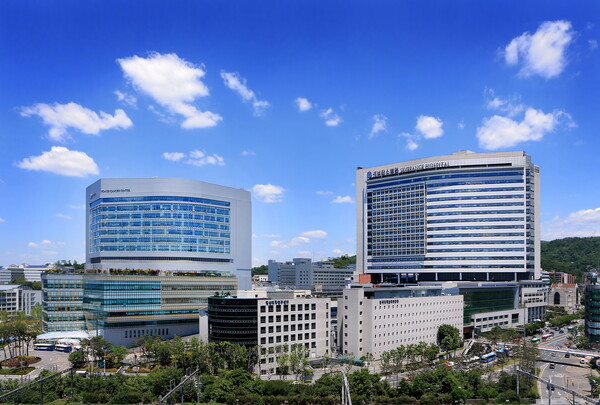Yonsei University Health System (YUHS) has earned recognition from Nature, one of the world's premier scientific journals, as one of the "Top 100 Leading Cancer Research Hospitals of 2023."

YUHS stands as the sole Korean hospital on this prestigious list, securing the 78th position.
Nature bases its assessments on the volume of papers published in SCI-class academic journals across four fields: biological sciences, chemistry, health sciences, and physical sciences, spanning from January 2022 to May 2023.
Subsequently, the contributions of each institution's researchers to these publications are compiled, scrutinized, and ranked.
YUHS achieved a contribution score of 17.94 points for cancer-related publications as the institution produced 74 cancer-related papers with an international citation rate of 42.3 percent.
In biological sciences , YUHS published a total of 15 papers with notable contributions, including Professors Kim Han-sang's tumor cell research published in Nature and Rha Sun-young's study in Nature Cell Biology.
In health sciences, the hospital published a total of 41 papers, including Lee Kang-young's research on Annals of Surgery and Rha Sun-young's research on the prestigious "The Lancet Oncology" journal, which has one of the highest impact factors among medical journals with 202.731.
In the physical sciences and chemistry sector, contributions by YUHS faculty were found in top journals like Advanced Functional Materials and Advanced Materials.
Recent advancements from YUHS also include research for new drug development and innovative treatment strategies.
Such studies include a research conducted by Yonsei Cancer Center's Lung Cancer Center Chief Professor Cho Byoung-chul on the combination of amivantamab and lazertinib in EGFR-mutated lung cancer resistant to osimertinib, a third-generation targeted therapy, in Nature Medicine.
Also, Professors Lee Jung-yun and Kim Sang-wun published a study demonstrating that the combination of three drugs(olaparib-bevacizumab-pembrolizumab) could significantly enhance the treatment efficacy for recurrent ovarian cancer without BRCA gene mutations in Nature Communications.
The hospital is also working to develop new surgical techniques.
Professor Hyung Woo-jin of the Gastric Cancer Center developed a surgical navigation system that creates a three-dimensional graphic screen by learning the patient's CT image, enabling the surgeon to check the distribution of surrounding blood vessels, thereby perfecting robotic surgery for gastric cancer.
Hyung also introduced fluorescence-guided resection, in which a fluorescent substance is injected into the submucosal layer of the patient's stomach through an endoscope to visualize the location of the tumor, thus establishing a standard for the surgeon's judgment during surgery.
"YUHS has been awarded a number of national clinical trials for new drugs, including immunotherapies, and is making bold investments in developing new drugs for intractable cancers," Yonsei University Health System (YUHS) President and CEO Yoon Dong-seop said. "With the full-scale operation of Korea's first Heavy Ion Therapy Center, we expect to build the latest data on the treatment of cancer patients and further strengthen our research capabilities based on it."
Related articles
- Yonsei's 1st heavy ion therapy shows excellent prostate cancer results
- Nature Index 2023 reveals Korea’s poor status in R&D in oncology
- Yonsei's lung cancer team recognized as Asia's best multidisciplinary team at WCLC 2023
- YUHS chief Yoon appointed as new president of Yonsei University
- YUHS partners with KURE.AI Therapeutics for cell therapy development

